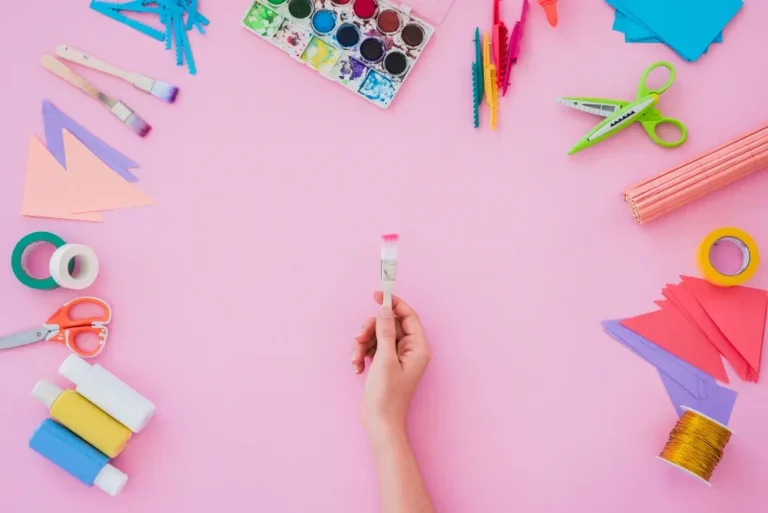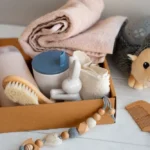As parents and educators, we all want our little ones to develop a love for learning from an early age. Math might sound intimidating, but with the right preschool math activities, it can become a delightful adventure filled with laughter and discovery. Imagine your child giggling while sorting colorful buttons or beaming with pride after mastering a simple counting game. These moments not only build foundational skills but also foster confidence and curiosity.
In this comprehensive guide, we’ll explore a treasure trove of preschool math activities designed to make number fun accessible and enjoyable. Whether you’re a teacher looking for classroom ideas or a parent seeking at-home learning opportunities, you’ll find practical, hands-on strategies that incorporate counting games, shape recognition, simple addition, and essential preschool tips. Let’s dive into the world of numbers and watch your preschooler’s eyes light up with excitement!
Why Preschool Math Activities Matter for Early Development
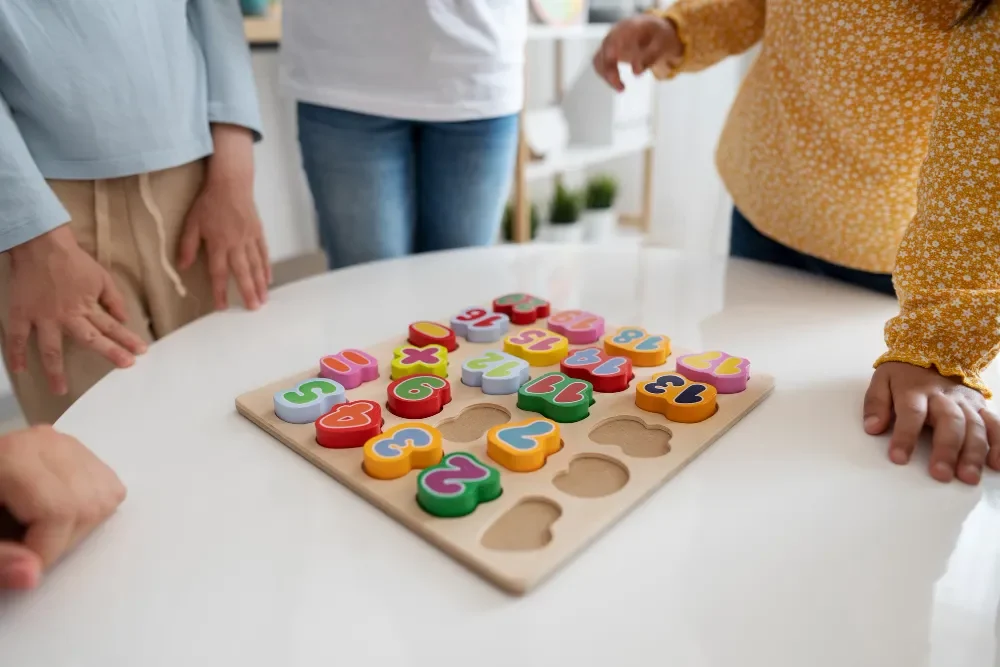
Math isn’t just about numbers on a page—it’s about understanding patterns, solving problems, and making sense of the world. Introducing preschool math activities early helps children develop critical thinking, spatial awareness, and logical reasoning. According to child development experts, children who engage in playful math experiences before kindergarten are more likely to excel in STEM subjects later in life.
Consider little Emma, a four-year-old who struggled to sit still during traditional lessons. Her preschool teacher introduced a counting game using toy cars, and suddenly, Emma was fully engaged, lining up her vehicles and counting them aloud. This simple shift transformed her attitude toward learning. Preschool math activities like these lay the groundwork for academic success while keeping things fun and stress-free.
Fun Counting Games to Build Number Sense
Counting games are the cornerstone of early math education. They help preschoolers grasp the concept of quantity, sequence, and one-to-one correspondence. Here are some creative ideas to get started:
1. Nature Scavenger Hunt
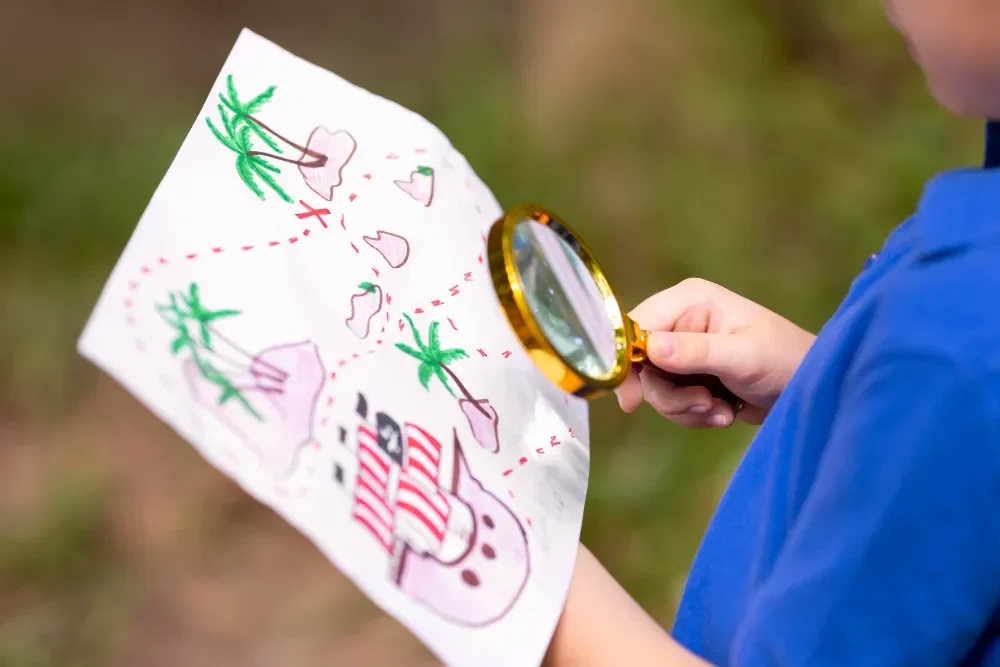
Take your child on a walk and challenge them to collect five leaves, three rocks, or two sticks. As they gather items, encourage them to count aloud. This activity combines physical movement with math, making it perfect for active learners.
2. Snack Time Counting
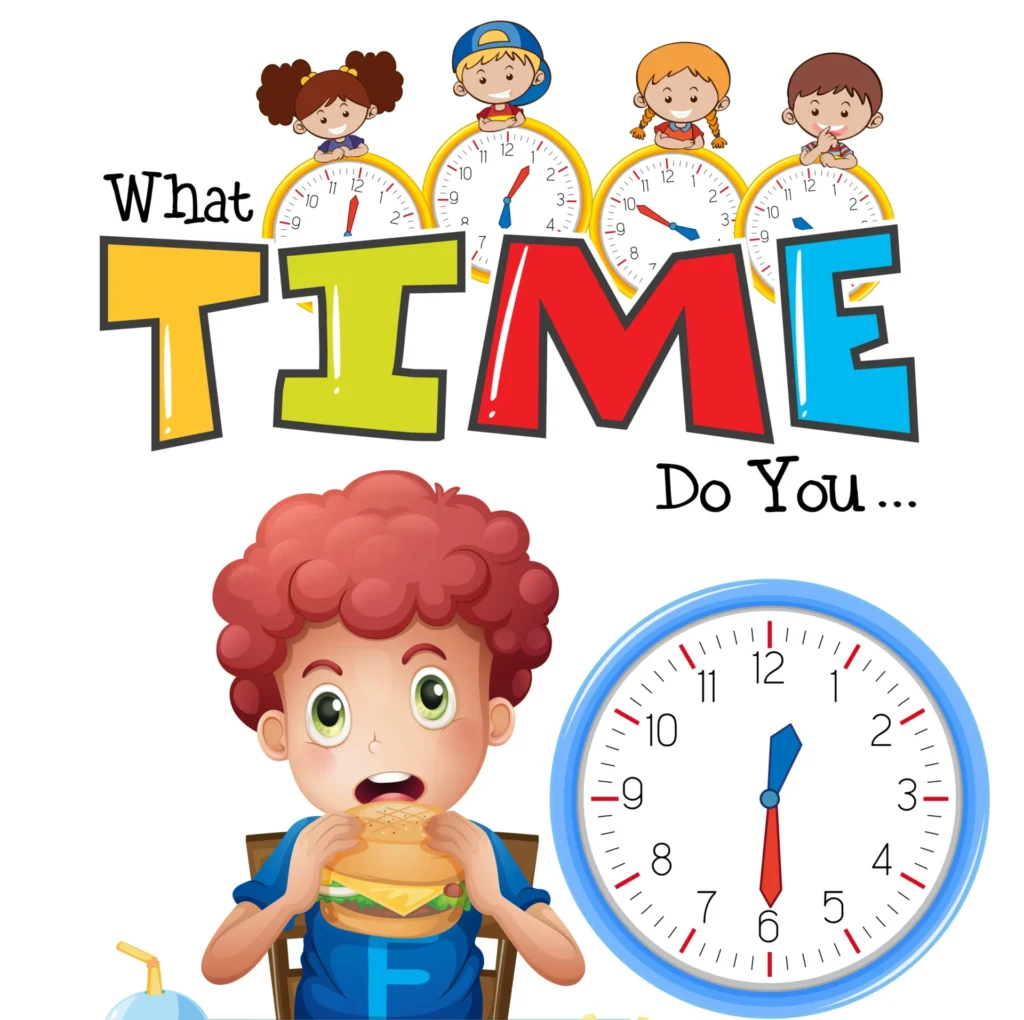
Turn mealtime into a learning opportunity by asking your child to count out a specific number of crackers or grapes. For example, “Can you give me four goldfish crackers?” This reinforces counting-games in a relatable context.
3. Hopscotch with a Twist

Draw a hopscotch grid with chalk and label each square with a number. As your child hops, they call out the number they land on. Add a fun challenge by asking them to clap that many times before moving to the next square.
These counting games are versatile and can be adapted to your child’s interests. Whether it’s counting toys, steps, or stars in the sky, the possibilities are endless.
Mastering Shape Recognition Through Play
Shape recognition is a vital preschool math skill that helps children understand geometry and spatial relationships. It’s also a gateway to more complex concepts like symmetry and patterns.
Interactive Shape Sorting
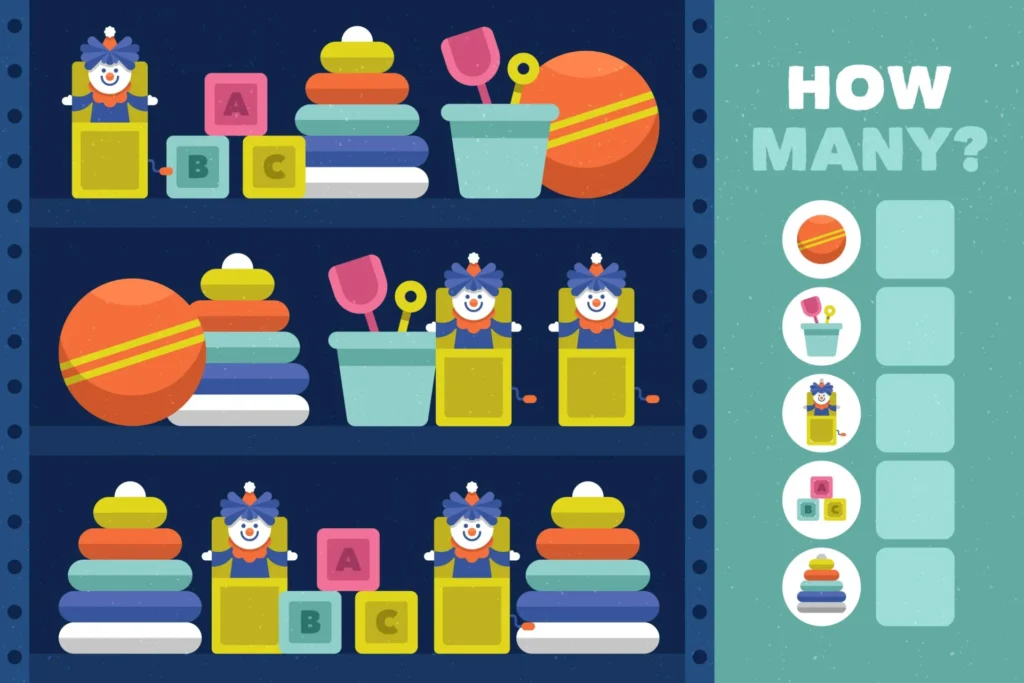
Gather household items like buttons, blocks, or cookie cutters in different shapes. Create a sorting mat with labeled sections (circle, square, triangle, etc.) and let your child categorize the objects. This hands-on activity builds fine motor skills alongside math knowledge.
Shape Hunts Around the House

Turn your living room into a shape safari! Ask your preschooler to find circles (like clocks or plates), squares (picture frames), or triangles (rooflines on toy houses). Celebrate each discovery with high-fives to keep the mood upbeat.
Real-World Example: Baking with Shapes
Sarah, a mom of twins, noticed her boys were disinterested in flashcards. She decided to bake cookies and used shape cutters to create circles, stars, and hearts. As they pressed the cutters into the dough, she named each shape and counted how many of each they made. By the end of the afternoon, the boys were proudly identifying shapes in the kitchen—and enjoying a tasty reward!
Shape recognition activities like these make abstract concepts tangible and memorable.
Introducing Simple Addition with Everyday Objects
Simple addition doesn’t have to involve worksheets or memorization. For preschoolers, it’s about understanding that combining groups creates a larger quantity.
1. Toy Combining

Line up two groups of stuffed animals—say, three bears and two rabbits. Ask your child, “How many animals do we have altogether?” Guide them to count each group and then combine them for the total. This visual approach makes simple addition intuitive.
2. Finger Addition

Use fingers to represent numbers. Hold up two fingers on one hand and three on the other, then ask your child to count all five. This kinesthetic method is especially helpful for tactile learners.
3. Story-Based Addition
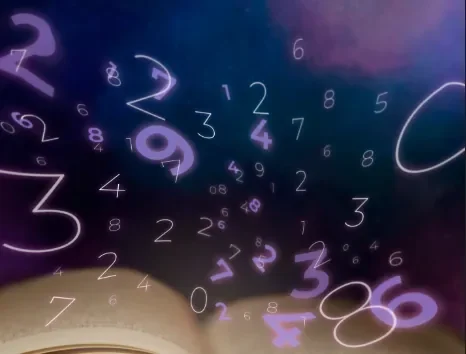
Create a short story: “Mia has two apples, and her friend gives her one more. How many does Mia have now?” Act it out with real fruit or drawings to bring the concept to life.
These activities introduce simple addition in a pressure-free way, setting the stage for future success.
Step-by-Step Guide to Creating a Math-Rich Preschool Environment
Setting up a nurturing space for preschool math activities doesn’t require fancy materials. Here’s a simple table to help you organize your approach:
| Step | Action and Description |
|---|---|
| 1. Designate a Math Corner | Create a dedicated area with baskets of counters (beans, pom-poms), shape sorters, and number cards. Keep it inviting and accessible. |
| 2. Rotate Activities Weekly | Introduce 2-3 new preschool math-activities each week to maintain excitement. Include a mix of counting-games and shape-recognition tasks. |
| 3. Incorporate Daily Routines | Weave math into everyday moments—count stairs while climbing, identify shapes in traffic signs, or practice simple-addition during snack time. |
| 4. Track Progress Playfully | Use a sticker chart to celebrate milestones, like mastering numbers 1-10 or identifying all basic shapes. Avoid pressure; focus on fun. |
| 5. Reflect and Adjust | Observe what engages your child most. If counting games spark joy but shapes feel tricky, spend extra time there with preschool tips like songs or videos. |
This structured yet flexible guide ensures math becomes a natural part of your preschooler’s day.
Overcoming Common Challenges in Preschool Math
Even the best preschool math activities can hit roadblocks. Here are solutions to frequent hurdles:
Challenge 1: Short Attention Spans
Solution: Keep activities under 10 minutes and follow your child’s lead. If they lose interest in a counting game, switch to shape recognition with music or movement.
Challenge 2: Fear of “Getting It Wrong”
Solution: Emphasize effort over accuracy. Praise phrases like “I love how you tried counting those buttons!” build confidence.
Myth: Math Is Only for “Smart” Kids
Truth: Every child can enjoy preschool math activities with the right approach. It’s about exploration, not perfection. Preschool tips like using manipulatives make math inclusive.
Real-World Scenario
When four-year-old Liam refused to participate in group counting games at preschool, his teacher noticed he felt overwhelmed by competition. She paired him with a buddy for one-on-one play, using cars to count quietly. Within a week, Liam was eagerly joining the group, proving that personalized preschool tips can turn challenges into triumphs.
Long-Term Benefits and Advanced Preschool Tips
Engaging in preschool math activities pays dividends far beyond the early years. Children who master counting games, shape recognition, and simple addition develop:
- Stronger Problem-Solving Skills: Early math fosters logical thinking, helping kids tackle puzzles and real-life challenges.
- Improved Memory and Focus: Recalling numbers or shapes strengthens cognitive pathways.
- Greater Confidence in School: A solid math foundation reduces anxiety when formal education begins.
Advanced Tips for Enrichment
- Pattern Play: Once basic counting games are mastered, introduce patterns (red block, blue block, red block). Use beads or colored paper.
- Measurement Exploration: Compare lengths with strings or heights with blocks. Ask, “Which tower is taller?”
- Number Stories: Encourage your child to create their own simple addition stories using toys or drawings.
- Tech with Caution: Use educational apps sparingly as supplements, not replacements, for hands-on preschool math-activities.
These strategies elevate learning while keeping it playful.
Conclusion: Spark a Lifelong Love for Math Today
From counting games that turn snacks into lessons to shape recognition hunts that explore the home, preschool math activities offer endless opportunities for growth and joy. By incorporating simple addition and smart preschool tips, you’re not just teaching numbers—you’re nurturing curiosity, resilience, and a positive attitude toward learning.
Start small: pick one activity from this guide and try it today. Watch your preschooler’s face light up as they discover the magic of math. With consistency and encouragement, you’ll lay a foundation that lasts a lifetime. Let the number fun begin!
Frequently Asked Questions
What are the best preschool math activities for beginners?
Start with simple counting games like counting fingers, toys, or steps. These build number sense without overwhelming young learners.
How can I teach shape recognition at home?
Use everyday objects—plates for circles, books for rectangles. Play “I Spy” games focusing on shapes to make shape-recognition fun and natural.
When should I introduce simple addition to preschoolers?
Begin around age 4 with concrete objects (e.g., combining two groups of blocks). Keep simple-addition playful and pressure-free.
What if my child resists math activities?
Follow their interests—count their favorite toys or sort shapes in a beloved storybook. Patience and preschool tips like short sessions help build enthusiasm.
Are worksheets necessary for preschool math?
No! Hands-on preschool math-activities like games and real-world exploration are more effective and engaging for young children.


